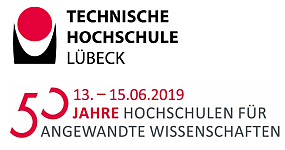The study program Water Engineering Master (WEM) informs about courses, professors, news and events related to this course for international students. For our lectures e-learning systems have been set up at www.maeh-campus.eu. Watch out at the bottom of each teaser text for each lecture.
Water Engineering Master and Master of Applied Ecohydrology
Higher Mathematics and Research Methods (Winter)
In this lecture scientific methods for the Water Engineering Master are introduced. The course comprises scientific computation for multi-parameter optimization (linear algebra), multiple regression, calibration methods, differential equations for environmental systems and their analytical and numerical solutions, statistical methods and machine learning techniques.
Simulation and Modeling (Winter)
The master course includes modeling of water quality, transport modeling in rivers and lakes, groundwater flow and transport modeling, solute transport in aquifers for the restoration of aquatic systems and water engineering with corresponding techniques. The course introduces the use of Python for hydrological modeling.
Hydrological Engineering (Summer)
The course introduces principles and methods of sustainable water resources management for the Master Water Engineering. The course includes water resources assessment and the necessary hydrological background on processes and water balances, integrated water resources assessment, flood and drought risk assessment, management and mitigation and planning for environmental hydrology.
Advanced Study Courses
Tracer Hydrology
The course on tracer hydrology introduces the principles of the use of tracers in hydrology. Environmental tracers and artificial tracers are presented, methods of applying them for hydrological studies, interpretation and modeling. The lecture is offered as a block course at TU Darmstadt.
Environmental Tracer Techniques
The course introduces and demonstrates environmental isotope field techniques with sampling, monitoring, analysis and interpretation. Analysis of recharge and solute transport are presented.

